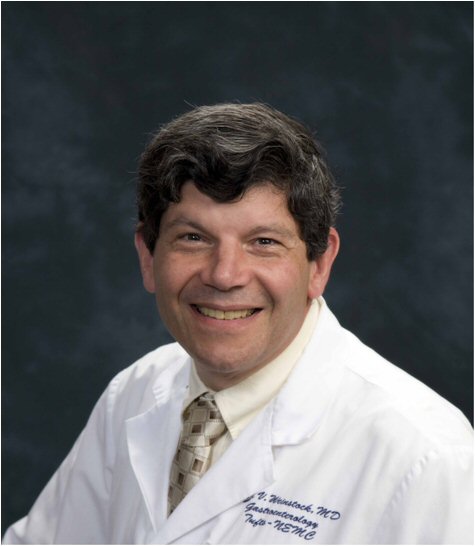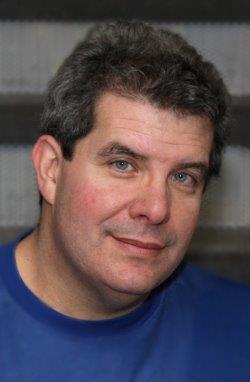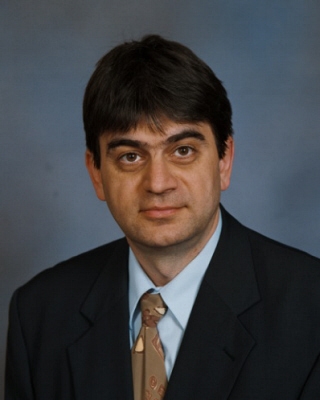Rapid and transformative changes are taking place in the healthcare industry as a whole, and the gasterenterology field is not immune to these changes.
Here five gastroenterologists discuss the challenges facing them and their peers, and talk about how to nonetheless stay at the forefront of the swiftly evolving field.
Question: In this day and age, what is the most challenging aspect of being in the gastroenterology field?
 Glenn Englander, MD, Good Samaritan Medical Center, West Palm Beach, Fla., in connection with The Expert Institute: The reality is that increasingly physicians are becoming employees rather than employers. I was a solo practitioner but now I am part of a group. The more administrative things I used to do, now I do less. So now it is hard to have your pulse on things or problems going on the practice.
Glenn Englander, MD, Good Samaritan Medical Center, West Palm Beach, Fla., in connection with The Expert Institute: The reality is that increasingly physicians are becoming employees rather than employers. I was a solo practitioner but now I am part of a group. The more administrative things I used to do, now I do less. So now it is hard to have your pulse on things or problems going on the practice.
Also, there are more and more interventions put upon physicians by the government or insurance agencies that wastes our time and impedes our care. We are constantly filling in paperwork and the quality of care I give is measured by whether I dated and timed every page. Rather than letting good physicians be good physicians we now have to defend ourselves.
Q: How do the demands of governmental regulations affect a gastroenterology practice?
Joel Weinstock, MD, Chief of Division of Gastroenterology/Hepatology, Tufts Medical Center, Boston, in connection with The Expert Institute: The requirements of documentation. That takes a lot of time and the software is not up to the task. So what once took 15 or 20 minutes now takes 25 to 30 minutes. And does it lead to better quality of care? Not in most cases.
Center, Boston, in connection with The Expert Institute: The requirements of documentation. That takes a lot of time and the software is not up to the task. So what once took 15 or 20 minutes now takes 25 to 30 minutes. And does it lead to better quality of care? Not in most cases.
Documentation is important and it's not wrong, but it shouldn't take up too much of the physician's time. Another demand is prior approval. When we decide that a patient needs particular medication and the insurance company doesn't release the medication or pay for the procedure until they approve it, this can affect patient care and adds to cost
Jeffrey Fine, MD, Chief of Gastroenterology, Medical and Surgical Clinic of Irving, Texas, Gastroenterologist, Star Medical Center, Plano, Texas and Las Colinas Medical Center, Irving, Texas: Many demands are put on us from different sources — regulatory agencies and payers, electronic medical records, more and more paperwork requiring us to spend more time completing it — and all the while, we're trying to provide the best, most cost-effective care available to the patients we serve. This is extremely challenging.
electronic medical records, more and more paperwork requiring us to spend more time completing it — and all the while, we're trying to provide the best, most cost-effective care available to the patients we serve. This is extremely challenging.
Q: What are some ways in which GI physicians can stay at the forefront of the field? How does continuing education tie into that?
Dr. Weinstock: One sure way of doing it is to learn from medical fellows and residents — learn new things and tricks. Continuing education is important for staying at the forefront of the field. Physicians can go to conferences or even listen to recorded lectures in the car. I also get a certain number of journals and I make a discipline of looking through the journals. Also, physicians can take time off to attend a national or regional meeting of a professional society. You have to put time into it.
John Milliken, MD, Northern Michigan Gastroenterology, Traverse City: Academically, we are very fortunate as gastroenterologists because we have very good organizations such as American College of Gastroenterology, which provides very practical national courses. These are both available by actual attendance or through our computer.
Administratively, again, this is mostly through our national organizations and through our local NPO, which has been extremely helpful in keeping us at the forefront of the upcoming changes in medicine, such as the change from the fee-for-service to fee-for-performance.
Dr. Fine: To stay at the forefront of their field, gastroenterologists have to be willing to explore all treatment options, which means being flexible and keeping up-to-date on the latest technology, techniques, research and trends. No matter how much experience or training you have, you have to keep improving and educating yourself, and you have to keep an open mind about the treatment process. This will enable you to provide better, more comprehensive care. It's also crucial to have a good network to refer patients to, because some conditions require a higher level of specialization.
Why is it important for physicians to develop expertise in various niches of the GI field?
Razvan Arsenescu, MD, PhD, The Ohio State University Wexner Medical Center, Columbus: I think that it is important for physicians to understand the landscape of healthcare. I think that developing expertise in specialized niches within the field of gastroenterology — like bowel disease or GI oncology or training in new and endoscopic approaches.
Columbus: I think that it is important for physicians to understand the landscape of healthcare. I think that developing expertise in specialized niches within the field of gastroenterology — like bowel disease or GI oncology or training in new and endoscopic approaches.
For many private practices, the main volume for GI practices comes from screening colonoscopies for cancers. But a new procedure, called virtual colonoscopy, now allows radiologists to gather the same information that screening colonoscopies gather. So they may end up doing diagnostic procedures traditionally performed by GI physicians, thereby affecting their practice volume. So being able to learn new procedures and specialize will give them an edge.
Q: What do you think 2014 holds clinically for GI physicians?
Dr. Fine: We're starting to see a trend in more preventive care. GI physicians are focusing more on treating the patient as a whole, while addressing the underlying reasons for the GI problem. I believe this trend will continue to grow. Research shows that less conventional therapies, such as food elimination, probiotics and nutritional supplements, can be helpful in treating certain conditions, and patients are becoming more receptive to comprehensive treatment. This treatment and maintenance often address the GI problem while enabling healthier living as a whole.
Dr. Arsenescu: There are new biologic treatments for bowel diseases and new antiviral treatments for hepatitis C. We also have new technology that allows us to get the information that biopsies give, and so GI physicians will be able to get that information. The keys to success will be the ability to be flexible and the ability to reinvent oneself every so many years.
Q: What will implementation of the Patient Protection and Affordable Care Act mean for the GI field as the rollout continues?
Dr. Englander: A fair amount of confusion. There will be a lot of gearing up and time spent towards getting data, that includes clinical data, data on patient satisfaction. I would have forgone all the money that we got from the government for implementing electronic health record systems and other systems because we have lost more money implementing these systems than the amount we are getting back.
Dr. Milliken: The new CPT codes that going to effect in October represent a major challenge for all physicians. In addition, with the Affordable Care Act, none of us know how this will affect our practice of medicine as there are so many unknowns. Also, the change from fee-for-service to fee-for-performance — how this will affect physicians is still somewhat unclear.
Physician Leadership in EHR Implementation: Q&A With Gastroenterologist Dr. Patrick Takahashi
Drs. Richard Fedorak, Haili Wang Develop Urine Test for Detection of Colonic Polyps
Dr. M. Babitha Reddy to Practice at New Mercy Family Medicine Clinic
Here five gastroenterologists discuss the challenges facing them and their peers, and talk about how to nonetheless stay at the forefront of the swiftly evolving field.
Question: In this day and age, what is the most challenging aspect of being in the gastroenterology field?
 Glenn Englander, MD, Good Samaritan Medical Center, West Palm Beach, Fla., in connection with The Expert Institute: The reality is that increasingly physicians are becoming employees rather than employers. I was a solo practitioner but now I am part of a group. The more administrative things I used to do, now I do less. So now it is hard to have your pulse on things or problems going on the practice.
Glenn Englander, MD, Good Samaritan Medical Center, West Palm Beach, Fla., in connection with The Expert Institute: The reality is that increasingly physicians are becoming employees rather than employers. I was a solo practitioner but now I am part of a group. The more administrative things I used to do, now I do less. So now it is hard to have your pulse on things or problems going on the practice. Also, there are more and more interventions put upon physicians by the government or insurance agencies that wastes our time and impedes our care. We are constantly filling in paperwork and the quality of care I give is measured by whether I dated and timed every page. Rather than letting good physicians be good physicians we now have to defend ourselves.
Q: How do the demands of governmental regulations affect a gastroenterology practice?
Joel Weinstock, MD, Chief of Division of Gastroenterology/Hepatology, Tufts Medical
 Center, Boston, in connection with The Expert Institute: The requirements of documentation. That takes a lot of time and the software is not up to the task. So what once took 15 or 20 minutes now takes 25 to 30 minutes. And does it lead to better quality of care? Not in most cases.
Center, Boston, in connection with The Expert Institute: The requirements of documentation. That takes a lot of time and the software is not up to the task. So what once took 15 or 20 minutes now takes 25 to 30 minutes. And does it lead to better quality of care? Not in most cases. Documentation is important and it's not wrong, but it shouldn't take up too much of the physician's time. Another demand is prior approval. When we decide that a patient needs particular medication and the insurance company doesn't release the medication or pay for the procedure until they approve it, this can affect patient care and adds to cost
Jeffrey Fine, MD, Chief of Gastroenterology, Medical and Surgical Clinic of Irving, Texas, Gastroenterologist, Star Medical Center, Plano, Texas and Las Colinas Medical Center, Irving, Texas: Many demands are put on us from different sources — regulatory agencies and payers,
 electronic medical records, more and more paperwork requiring us to spend more time completing it — and all the while, we're trying to provide the best, most cost-effective care available to the patients we serve. This is extremely challenging.
electronic medical records, more and more paperwork requiring us to spend more time completing it — and all the while, we're trying to provide the best, most cost-effective care available to the patients we serve. This is extremely challenging. Q: What are some ways in which GI physicians can stay at the forefront of the field? How does continuing education tie into that?
Dr. Weinstock: One sure way of doing it is to learn from medical fellows and residents — learn new things and tricks. Continuing education is important for staying at the forefront of the field. Physicians can go to conferences or even listen to recorded lectures in the car. I also get a certain number of journals and I make a discipline of looking through the journals. Also, physicians can take time off to attend a national or regional meeting of a professional society. You have to put time into it.
John Milliken, MD, Northern Michigan Gastroenterology, Traverse City: Academically, we are very fortunate as gastroenterologists because we have very good organizations such as American College of Gastroenterology, which provides very practical national courses. These are both available by actual attendance or through our computer.
Administratively, again, this is mostly through our national organizations and through our local NPO, which has been extremely helpful in keeping us at the forefront of the upcoming changes in medicine, such as the change from the fee-for-service to fee-for-performance.
Dr. Fine: To stay at the forefront of their field, gastroenterologists have to be willing to explore all treatment options, which means being flexible and keeping up-to-date on the latest technology, techniques, research and trends. No matter how much experience or training you have, you have to keep improving and educating yourself, and you have to keep an open mind about the treatment process. This will enable you to provide better, more comprehensive care. It's also crucial to have a good network to refer patients to, because some conditions require a higher level of specialization.
Why is it important for physicians to develop expertise in various niches of the GI field?
Razvan Arsenescu, MD, PhD, The Ohio State University Wexner Medical Center,
 Columbus: I think that it is important for physicians to understand the landscape of healthcare. I think that developing expertise in specialized niches within the field of gastroenterology — like bowel disease or GI oncology or training in new and endoscopic approaches.
Columbus: I think that it is important for physicians to understand the landscape of healthcare. I think that developing expertise in specialized niches within the field of gastroenterology — like bowel disease or GI oncology or training in new and endoscopic approaches. For many private practices, the main volume for GI practices comes from screening colonoscopies for cancers. But a new procedure, called virtual colonoscopy, now allows radiologists to gather the same information that screening colonoscopies gather. So they may end up doing diagnostic procedures traditionally performed by GI physicians, thereby affecting their practice volume. So being able to learn new procedures and specialize will give them an edge.
Q: What do you think 2014 holds clinically for GI physicians?
Dr. Fine: We're starting to see a trend in more preventive care. GI physicians are focusing more on treating the patient as a whole, while addressing the underlying reasons for the GI problem. I believe this trend will continue to grow. Research shows that less conventional therapies, such as food elimination, probiotics and nutritional supplements, can be helpful in treating certain conditions, and patients are becoming more receptive to comprehensive treatment. This treatment and maintenance often address the GI problem while enabling healthier living as a whole.
Dr. Arsenescu: There are new biologic treatments for bowel diseases and new antiviral treatments for hepatitis C. We also have new technology that allows us to get the information that biopsies give, and so GI physicians will be able to get that information. The keys to success will be the ability to be flexible and the ability to reinvent oneself every so many years.
Q: What will implementation of the Patient Protection and Affordable Care Act mean for the GI field as the rollout continues?
Dr. Englander: A fair amount of confusion. There will be a lot of gearing up and time spent towards getting data, that includes clinical data, data on patient satisfaction. I would have forgone all the money that we got from the government for implementing electronic health record systems and other systems because we have lost more money implementing these systems than the amount we are getting back.
Dr. Milliken: The new CPT codes that going to effect in October represent a major challenge for all physicians. In addition, with the Affordable Care Act, none of us know how this will affect our practice of medicine as there are so many unknowns. Also, the change from fee-for-service to fee-for-performance — how this will affect physicians is still somewhat unclear.
More Articles on Gastroenterologists:
Physician Leadership in EHR Implementation: Q&A With Gastroenterologist Dr. Patrick Takahashi
Drs. Richard Fedorak, Haili Wang Develop Urine Test for Detection of Colonic Polyps
Dr. M. Babitha Reddy to Practice at New Mercy Family Medicine Clinic


